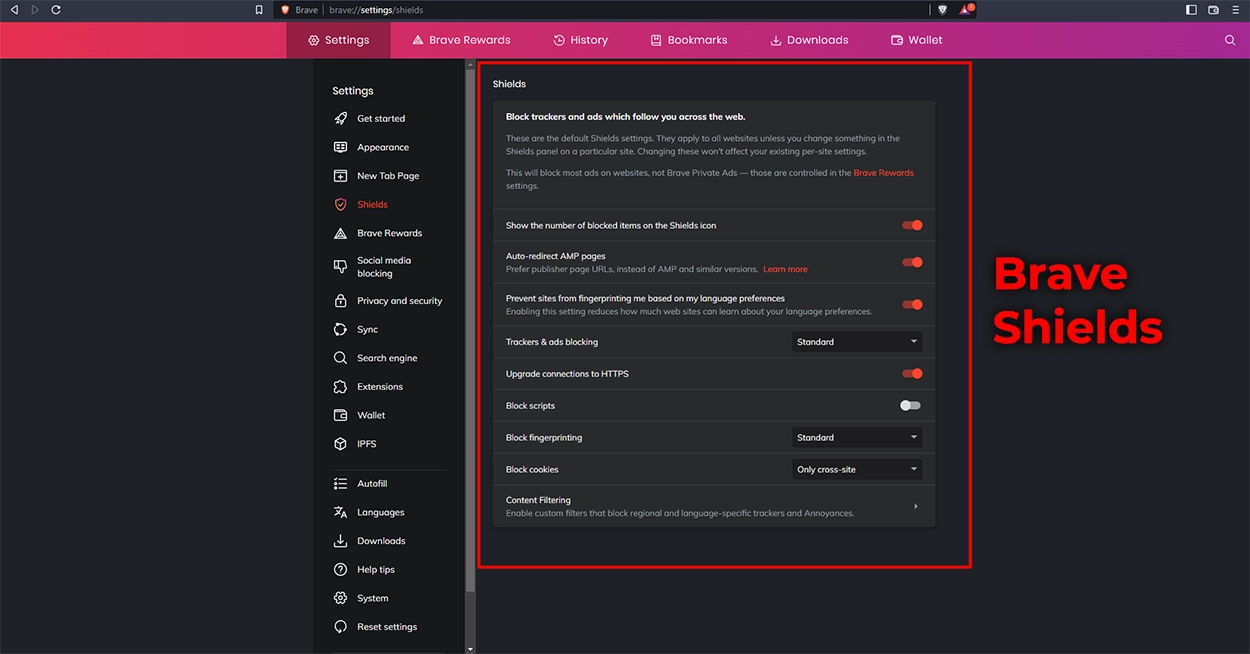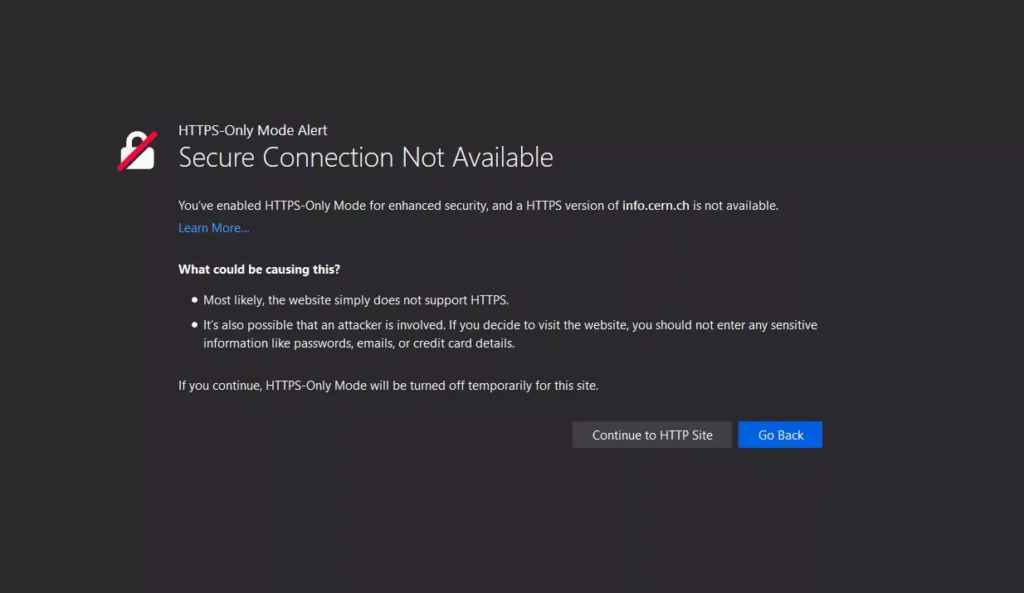Brave is one of those browsers with a different mission. It takes a different approach to dealing with ads.
How does it compare with our trusted Mozilla Firefox? The article takes a ride and covers Mozilla Firefox vs. Brave.
Takeaway
- Brave has slightly more privacy features, such as ad and script blocking.
- Brave was faster in the performance test.
- Brave has many crypto features which may or may not be useful to you.
Platforms
Both are available on desktop computers (Windows, Mac, and Linux) and Android and iOS. Both also support Chrome OS through Linux.
Synchronization
Both support synchronization, but how you sync devices is different. With Firefox, you can sync:
- Passwords
- Open tabs
- Bookmarks
- Add-ons (desktop only)
- Browsing history
- Settings
You can sign in with your Firefox account to enable synchronization, while on the mobile phone, you also have the option to scan the QR code of the desktop Firefox to sign in.
Brave does not support accounts, but you can sync devices using the QR code.
You also have the option to create a sync code that generates some random words. You paste those words into another device to start synchronization.
Privacy and security

Firefox comes with two-level security. You get Standard Enhanced Tracking Protection enabled, which blocks social media trackers, cross-site tracking, crypto miners, fingerprinter, and content tracking in private windows. It also offers total cookie protection.
The Strict Enhanced Tracking Protection comes with total cookie protection, which blocks all third-party cookies and gives each website its cookie jar.
It also has Custom Enhanced tracking protection, allowing users to choose the trackers to block.
Brave also comes with Standard Protection, which warns about dangerous events and checks for unsafe URLs.
You can adjust the fingerprinting and cookie settings. Other than that, Brave lets you enable and disable::
- Google login button on websites
- Facebook login button
- Twitter embeds on other websites
- LinkedIn embeds
Lastly, like the checkup option in Chrome, Brave can check for updates, browsing settings, and extensions simultaneously.
Brave’s injecting referral links
This issue should be discussed in this section because Brave was caught injecting its referral codes into website URLs.
As reported by CR1337 on Twitter, going to some websites redirects to the referral pages, which is a huge deal considering Brave is a privacy-focused browser.
Firefox vs. Brave: Passwords
Firefox saves passwords in your Firefox account. On desktops, the program has a primary password, which works like a master password. You can only view them by using your primary password.
We don’t have the primary password on a mobile phone, but you can use the phone’s login method to view the stored passwords.
Brave also allows saving and syncing passwords. The browser does not have a master password, so the only option to view the stored passwords is to use your computer/mobile sign-in method.
Search engines
Brave has introduced its own search engine, which I had the opportunity to review. However, Google is the default engine as of writing this. Firefox also has Google as the default engine.
Both come with a few search engines to select from, including Bing, DuckDuckGo, and Ecosia.
While you are here: Google Chrome versus Brave
Some differences
Brave blocks ads, while Firefox does not.
Both block third-party cookies by default.
Firefox blocks tracking or malicious scripts by default, whereas Brave has this option, but you must enable it in the settings.
Brave comes with a crypto wallet to keep your coins.
Brave has a text-to-speech feature.
Firefox has a screenshot feature.
Firefox has a VPN on desktop browsers (limited countries), whereas Brave has a VPN on mobile devices.
Firefox has built-in Picture-in-Picture mode.
Both also offer reader mode, bookmark manager, and spell-checking options.
Both allow you to enable the dark mode.
Performance test
I took two tests to find the fastest browser. Brave performed better than Firefox in both rounds. Here is the table displaying the results:
| Browser | Test 1 | Test 2 |
|---|---|---|
| Brave | 3.41 Seconds | 1.3 Seconds |
| Firefox | 3.51 Seconds | 4.53 Seconds |
Both browsers block specific scripts that make them faster, but Brave blocks advertisements, making it faster than most browsers.
Battery test
The battery test is split into two sections: Windows and Android. I conducted this test by playing the same video in full HD in both browsers.
Windows
After playing an 8-minutes video, I concluded that Firefox drains more battery.
It’s strange, considering Brave is built on Chromium, but it consumed 5%, which was 2% less battery than Firefox (7%).
Android
I followed the same procedure on Android and played a 6-minute video. Both consumed zero percent battery, so the Android test is a tie.
HTTPS

The HTTPS protocol is essential for websites requesting user information, such as forms and payments. Both come with an HTTPS-only mode to upgrade HTTP connections to HTTPS.
Firefox checks if the site can support HTTPS; if it can’t, it shows a warning. If you proceed, the browser temporarily deactivates the HTTPS-only mode for that site.
The service has introduced another layer of protection called DNS over HTTPS (DoH), which stops ISPs from seeing your data. The feature is helpful while connected to public Wi-Fi.
Brave does not give any warning. It simply opens the website in HTTP mode. I believe Firefox handles this option better because at least you know what is happening.
Additional features
In this section of Firefox vs. Brave, we cover some additional options.
Extensions
Both support extensions on desktops. Because Brave is based on the Chromium project, it supports almost all the extensions available on Chrome Web Store. Firefox offers extensions, but not as many as Brave.
Brave rewards
Brave blocks ads, which is against content creators. But Brave has found a way of rewarding site owners and writers. The browser sends notification ads.
These ads are called Brave ads. Users get Basic Attention Tokens (BAT) to view those ads.
Users can cash out BAT to their cryptocurrency accounts or tip content creators for their efforts.
Read next: DuckDuckGo or Firefox
Video
Still not sure? Watch the video and see how both programs work.
My recommendation and summary
Both are excellent browsers. Firefox is experienced and has been working on great technologies to help users browse safely and securely.
Brave offers many privacy options, but customizing it is a bit complex. It also has a different concept of earning coins, but I don’t see that helping anyone yet.
If you are an average person who likes to browse the good-old internet, go with Firefox. If you are a crypto fan and want to earn a bit of cash, go with Brave.
Brave vs. Firefox: Links
Madhsudhan Khemchandani has a bachelor’s degree in Software Engineering (Honours). He has been writing articles on apps and software for over five years. He has also made over 200 videos on his YouTube channel. Read more about him on the about page.

In order to replace privacy corrupt Chrome, I ran Edge, Firefox and Brave for a month. Brave was the first to be uninstalled and deleted because it can’t display or save pdfs. There are many threads confirming this ongoing bug that is specific to Brave: https://community.brave.com/t/how-to-handle-pdf-files-in-brave/104110/7
You should learn how to use computers for basic tasks first!
@L.A.Superstar, LOL
Really, all that smoke and no fire? I just waisted 10 minutes for you to give a rundown on the two Browser’s and I’m still waiting. You haven’t told us anything but “try them out for yourself”. Why didn’t you just sum up your intro with that. That was the lamest report I have ever read, a kindergarten class could have done that well if not better… .really?
Regards.
What else did you want? Performance, speed test, battery test, security, syncing… If this did not help you, then I don’t think any comparison will. Have a nice day.
Regards.
This was a poorly researched article. You clearly haven’t used Brave enough. It easily syncs between computers; I do it all the time. It doesn’t require an account (i.e., a login) but relies upon a signature you share between the computers.
BTW: I’ve used both browsers though, currently, I use Brave as my primary browser on Windows, Linux, and Android.
I am reading about new browsers after the FF update changed my browser with out asking. I detest being forced to follow big brother. I understand the need and desire for new things and offerings. But to have them changing the settings on my computer is the fastest way to have me go elsewhere.